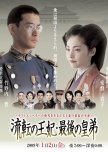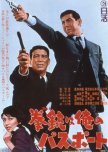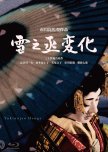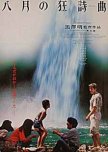- Português (Brasil)
- English
- magyar / magyar nyelv
- dansk
- Título original: 流転の王妃
- Também conhecido como: Ruten no Ohhi , Ruten no ouhi
- Diretor: Tanaka Kinuyo
- Roteirista: Wada Natto
- Gêneros: Histórico, Romance, Drama, Guerra
Elenco e Créditos
- Funakoshi Eiji Papel Principal
- Kyo MachikoRyuko Korinkakura / Hiroko AishinkakuraPapel Principal
- Higashiyama ChiekoNao SugawaraPapel Secundário
- Sawamura SadakoKazuko SugawaraPapel Secundário
- Mito MitsukoIzumiPapel Secundário
- Ryu ChishuKinoshitaPapel Secundário
Resenhas

The army decides that Ryuko (Saga) is to be married to Pujie, the younger brother of Puyi, the last emperor of China and the current puppet ruler of Manchukuo. Pujie is a lieutenant in the Japanese army. Ryuko and Pujie make a surprisingly good fit and are happy together in their small house in Manchukuo even with Pujie's spendthrift ways. Despite the Kwangtung Army’s disrespect of them, the two refuse to let anything get them down. They have a daughter, Eisei, whom Pujie dotes on. But this is war and war is hell. When the Japanese are defeated, Puyi abdicates, and soon the extended royal family is on the run from the Chinese and the Soviets.
I had three complaints about this film. Perhaps because Saga and other people involved in the story were still alive, Tanaka showed too much deference. They didn't say what the empress' illness was until late in the film when they finally revealed she was dealing with opium withdrawal. In the prison Ryuko had an almost obsessive need to protect her when her daughter was completely dependent on her. Saga had also written in her book that she felt Puyi's cruel behavior had contributed to the opium use so she had been well aware of it. The death the film began with was whitewashed*, which was egregious as apparently it was a rather well-known scandal at the time. A few abuses committed by the Japanese military were listed which wasn’t the same thing as showing, a far more powerful technique.
In real life, there was no one to root for in this story. Puyi enjoyed torturing his servants and could be sadistic to his wives, which wasn't shown in this film. The Manchurians were literally being used as slave labor, something Puyi supported. The Kwangtung Army ruled everyone with a vicious hand. In the film, that same military was considered a monolith, much like Star Trek’s Borg. Orders weren’t given by any individual, “the army said,” was all the reason given throughout the film. "The army said" Ryuko would marry Pujie, "the army said" the Manchurians would receive no coal during the winter, etc. Ryuko and Pujie may have fallen in love, but it doesn't negate the fact the only reason they were there was because Japan occupied Manchukuo. Ryuko might be given a bit of a pass as she and her family had been encouraged to agree to the marriage by "the army."
This leads to my third complaint which is more artistic in nature. Many of the more poignant moments took place off screen. The Manchurians' suffering was mentioned and yet was all but invisible, heartbreaking final goodbyes and tearful reunions weren’t shown yet there was time for at least three long scenes of people singing. Ryuko was shown to be almost saintly in all of her interactions. It felt like there were missed opportunities for real human moments instead of ones that felt distanced by telling us what happened and sanitizing the story.
What did work? Kyo Machiko gave a strong performance as Ryuko showing how she sought to fit in with her new country and husband. After a life of being pampered, she was faced with hardship and death she'd never known. I also liked that this telling of the story was from a woman’s point of view, instead of the deposed emperor's. The cinematography was stunning and highlighted the hardships of the refugees as they traversed difficult mountainous terrain. It was nice for a change that a royal arranged marriage worked out, both Ryuko and Pujie were quite enamored with each other. Even after both having spent time in prison they longed to reunite. The OST fit the film like a musical glove. And finally, the few action scenes were well choreographed and filmed for the time. Despite not diving too deeply into the Kwangtung Army’s faults, Tanaka never really let them off the hook either.
The Wandering Princess wandered too much and Ryuko was too optimistic and unable to accept the cruelty all around her. It was interesting to see this story play out through this woman’s idealistic, if not realistic eyes, eyes that hoped to see Japanese and Chinese children playing together in Manchukuo. What she didn’t grasp about the Manchukuo she and Pujie dreamed about was that people are more willing to work toward harmonious relationships if no one brings an army and forces their way in and enslaves much of the indigenous population.
1 September 2025
Real life spoilers:
Not long after this movie came out, Pujie was released from prison and Saga Hiro was allowed to go to him in Beijing.
*Film Eisei was a composite of Pujie and Saga's two daughters. Eisei was 19 and in love with a young man that her mother did not approve of. The two were found dead together, a murder-suicide/lovers’ suicide. Eisei didn’t commit suicide due to the pressure of being a Qing heir as alluded to in the film. She also didn’t have to make the arduous trip and spend time in prison like her mother and younger sister. She had moved to Japan earlier to study and was not caught up in the expulsion and termination of the Japanese after the end of WWII.
Esta resenha foi útil para você?

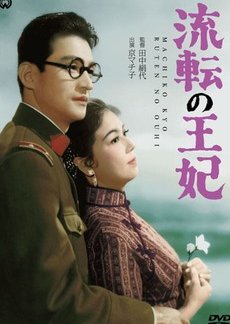


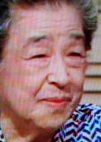

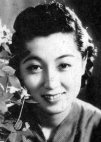

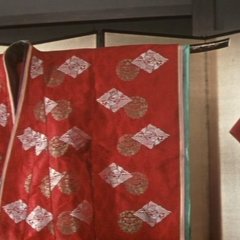
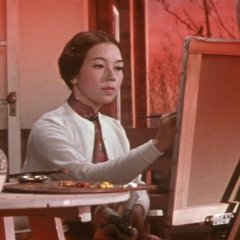
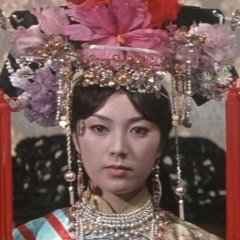
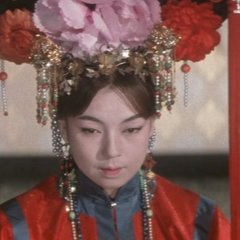
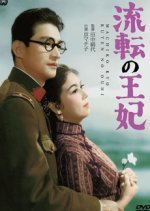
 1
1